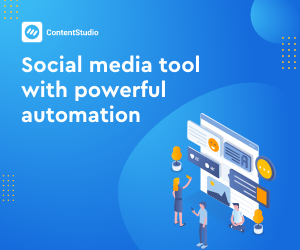AI Security
The Silent Threat: AI Health Risks Could Impact Millions

Over the last couple of years, we saw the rapid development of AI-driven tools and services that could drastically improve lives around the world. However, in a new report, experts warn of potential AI health risks that could impact the lives of millions of people and lead to unemployment.
According to a new BMJ Global Health article, public health experts united to publicly demand a halt of developments in the field of artificial intelligence and machine learning. They also called for urgent regulations that could make AI-driven tools safe to use by the public.
It’s no secret that AI drastically improved many different fields – from marketing and economics to healthcare and science. Research in AI yielded great results, with many AI-powered tools improving general life on so many levels.
Many smart tools, powered by artificial intelligence are actively used today, including smartwatches and other wearables that can show ECG and blood pressure readings and even warn about potentially serious health issues such as cardiac arrest and heart attack.
One such example is Apple Watch which is credited to have saved a woman’s life from the notorious Widow heart attack after it showed abnormal heart rate readings in 2021. However, even though the benefits of the use of artificial intelligence in healthcare grow, many health experts believe that AI is unregulated and could do more harm than good as such.
AI Health Risks from Errors
Global health experts from The UK, US, Australia, and other countries the world are concerned that different errors, misuse, as well as issues with data privacy could increase AI health risks on a global level.
They also listed an example associated with racial bias when diagnosing a patient with darker skin, which was detailed in a paper published in 2020. The paper details a case of a pulse oximeter that was powered by AI giving higher oxygen saturation levels in patients with darker skin which led to the wrong treatment of the patient’s hypoxia.
The health experts also named examples of facial recognition systems falsely recognizing people with darker skin because of racial bias.
The paper acknowledges, however, that some AI health risks were recognized by global health institutions, but they call for more discussion regarding the implications of AI misuse globally. They said that there is a need to talk about the “social, political, economic and security-related threats posed by AI” which are also determinants of public health.
AI Taking Over Jobs
The authors of the paper also fear that widespread use of AI could quickly lead to unemployment in healthcare, which could have mental health implications for millions of people around the world, which calls for quick regulations to prevent AI health risks and allow people to adapt to the changes of this fast-paced development.
“While there would be many benefits from ending work that is repetitive, dangerous, and unpleasant, we already know that unemployment is strongly associated with adverse health outcomes and behavior,” the paper reads, adding that people affected by being replaced by AI could seek comfort in alcoholism, drug abuse, eating disorder and other things that could negatively affect health.
This is not the only report that focuses on potential AI health risks. Other papers also explore the need to regulate AI-driven systems, especially autonomous AI systems.
Last month, a paper exploring negative human rights being the foundation of long-term AI regulation, calls for incorporating new principles and laws to avoid potentially risky and harmful behaviors. Aside from that, earlier this year, AI experts, joined by Elon Musk called for a 6-month pause in AI development. The petition followed the rapid release of GPT-4 language models few months after OpenAI’s ChatGPT released.














